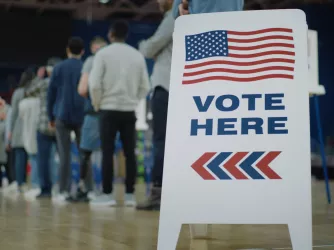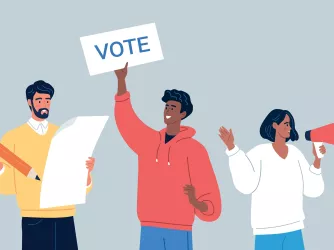Table of Contents
‘Disposition’ Leaves Students Indisposed
Earlier today, Greg brought our attention to FIRE friend KC Johnson’s article, “Disposition for Bias,” on Inside Higher Ed. The article addresses an increasingly popular form of intellectual coercion that is taking place in our nation’s schools of education called the “disposition” theory. This theory seems to require that education students have the right amount of “commitment to social justice” if they want to become teachers. Johnson describes the concept of “disposition” thusly:
Traditionally, prospective teachers needed to demonstrate knowledge of their subject field and mastery of essential educational skills. In recent years, however, an amorphous third criterion called “dispositions” has emerged. As one conference devoted to the concept explained, using this standard would produce “teachers who possess knowledge and discernment of what is good or virtuous.” Advocates leave ideologically one-sided education departments to determine “what is good or virtuous” in the world.
Johnson’s article provides some examples of this theory’s influence on education school policies:
At the State University of New York at Oneonta, prospective teachers must “provide evidence of their understanding of social justice in teaching activities, journals, and portfolios...and identify social action as the most advanced level.” The program at the University of Kansas expects students to be “more global than national and concerned with ideals such as world peace, social justice, respect for diversity and preservation of the environment.” The University of Vermont’s department envisions creating “a more humane and just society, free from oppression, that fosters respect for ethnic and cultural diversity.” Marquette’s program “has a commitment to social justice in schools and society,” producing teachers who will use the classroom “to transcend the negative effects of the dominant culture.” According to the University of Toledo, “Education is our prime vehicle for creating the ‘just’ society,” since “we are preparing citizens to lead productive lives in a democratic society characterized by social justice.”
Johnson continues:
This rhetoric is admirable. Yet, as the hotly contested campaigns of 2000 and 2004 amply demonstrated, people of good faith disagree on the components of a “just society,” or what constitutes the “negative effects of the dominant culture,” or how best to achieve “world peace...and preservation of the environment.” An intellectually diverse academic culture would ensure that these vague sentiments did not yield one-sided policy prescriptions for students. But the professoriate cannot dismiss its ideological and political imbalance as meaningless while simultaneously implementing initiatives based on a fundamentally partisan agenda.
The whole article is very much worth reading. FIRE is increasingly seeing cases where colleges and universities are discriminating against—or even dismissing—students for disagreeing with a school’s ideological perspective. Scott McConnell, who was dismissed from Le Moyne College’s education program for suggesting that corporal punishment had a place in the “ideal” classroom, is a great example of this. So is Bill Felkner, who has repeatedly suffered at the hands of Rhode Island College’s School of Social Work because of his disagreement with the school’s official position on social welfare issues. KC also brings up an example of the problem from his own Brooklyn College. Is this a growing trend? Email us feedback if you have any stories of your own.
Recent Articles
FIRE’s award-winning Newsdesk covers the free speech news you need to stay informed.

VICTORY! Maine hospital backs down from defamation threat over teen’s criticism

Socratic free speech scholar Frederick Schauer dies at 78 — First Amendment News 446

FIRE reminds Michigan town that residents have the right to ‘concealed carry’ campaign literature in polling places
